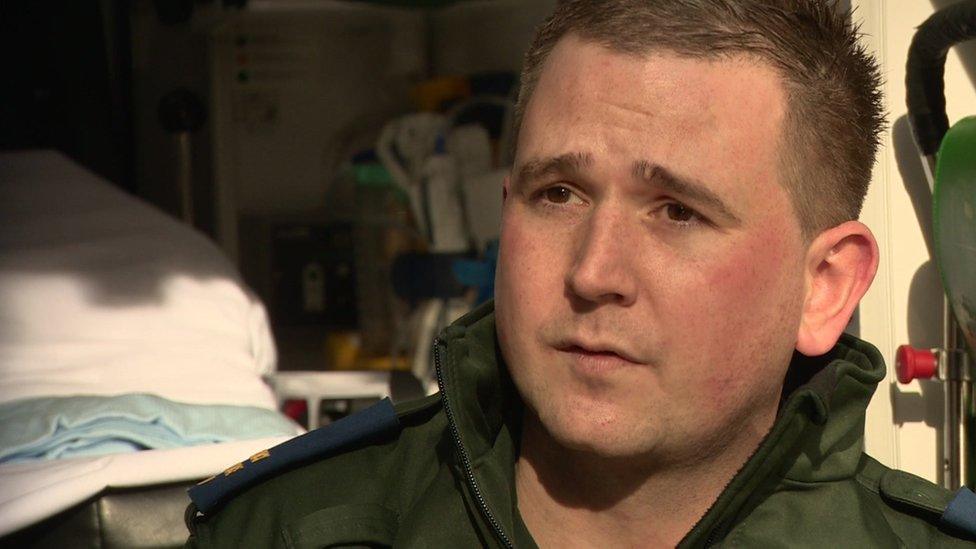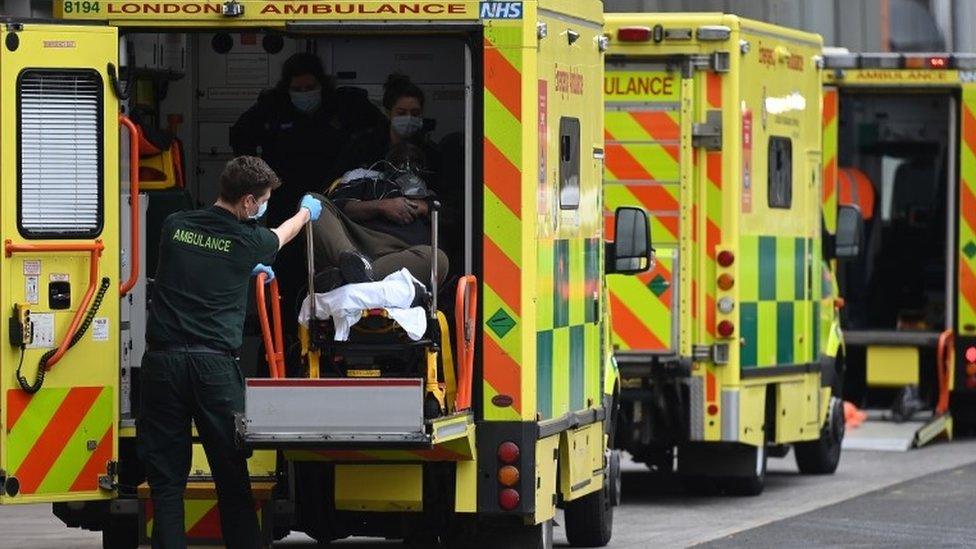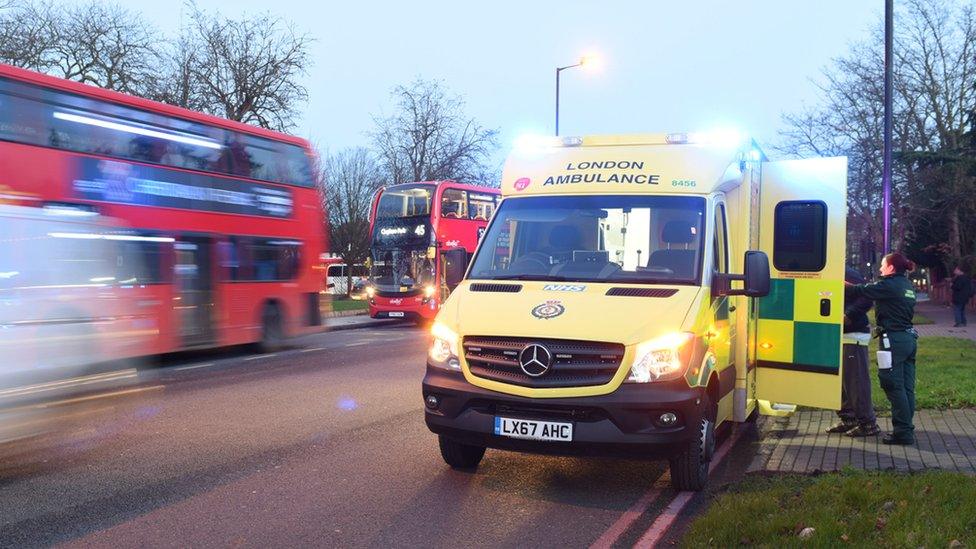Paramedic assaults: 'We don't come to work to be abused'
- Published

Gary Watson was off work for three months following the injuries he sustained in the attack
Every day an ambulance staff member is assaulted in London.
The risk of violence is so great that the city is the only ambulance service in the country that routinely gives its staff stab vests to protect them.
Since April last year, more than 500 staff have been attacked. They have been kicked, punched, bitten, spat at and head-butted. Thirty-one incidents have involved weapons.
There have also been almost 850 incidents of verbal abuse and threats, and there are concerns many go unreported.
To try and prevent physical or verbal attacks, London Ambulance Service (LAS) is trialling body-worn cameras in areas where staff and volunteers are considered to be most at risk, based on previous incidents.
Gary Watson - who has worked as an emergency crew member for 10 years and is based in Croydon - was badly injured when he was violently assaulted by a drunk patient three years ago.
Here, the 33-year-old describes what happened.
'Am I going to be all right?'
It was a weekend, early morning, and I was called to a collapsed male in a doorway. When we got him into the ambulance it quickly escalated.
My colleague went to leave the ambulance and the patient got up and went to kick him in the face. I turned around and he started to lash out at myself and my crewmate. This went on for about eight minutes.
We were kind of trapped in the ambulance and with the public walking past you've got to think 'what do you do?' Do you try and get this male out and he goes onto the street? It was contained in the ambulance the whole time.
It was myself and my colleague who were in the ambulance, and two other ambulance staff there - one person on a motorbike and one in a fast response car - so there were four of us in total and two of us who were trapped in the back.
The public are walking past and I just remember looking out the door and seeing a lady with a buggy, a newborn baby, and then the situation escalated.
We pressed the emergency button which went through to control to say we needed urgent police. Eight minutes later the police turned up, withdrew a Taser and eventually he stopped.
That was the only time when I've been at work and thought: 'Am I going to be all right? Am I going to get off this ambulance or am I going to be stuck here? What's going to happen?'
At the time it's just general shock really because we don't expect to deal with that at work - we're good people, we come to work to care for people, we don't come to work to have abuse thrown at us or violence, that's not what we come to work for.
'Stand and be accused'
I had significant face injuries. I had strangulation marks around my neck, a torn ligament on my shoulder which I'm still suffering from now, and a back injury which resulted in me being off for about three months.
Going through court was horrible. I was worried about it leading up to it but at the time when you're in court, I was being accused - the ambulance service was being accused - of attacking the patient. So I had to stand there and be accused and be told that actually it was me that started this. This went on for hours and it was a two-day trial. It was a horrible place to be, horrible.
After two days on trial I found out he got a 12-month suspended sentence on condition that he went to a drink and drug rehabilitation course.

Someone is prosecuted once a fortnight for attacking an ambulance worker
We were all told there was £100 compensation per person who was assaulted which was three of us. I haven't seen any compensation at all.
I still don't know why it happened. You kind of want closure - find out what it is, put it in a box and put it away - but we haven't got that answer.
We're at the point where it has become the norm.
You get someone who's being abusive and you try to talk them down and calm them down and eventually it just feels the norm.
You do still see and hear about people getting spat at, especially with Covid-19, spitting at people on purpose.
'Feel safer'
It's been a long, long time of asking for it but body-worn cameras have just been introduced.
They're not compulsory, they're for those who choose to take it out. It's not recording all the time, but I will say 'I'm going to activate this camera for your safety and my safety so it's now recording audio and sound'. I think it will act as a deterrent and calm the situation down and stop it altogether hopefully.
You do feel safer wearing it because you've got that back up of proof that if something happens, it's visual and audio and it's evidence.
The amount of times people make accusations, they then view back on the footage and it tells another story.
Because this job is what it is and it's so good and I love it, you do have to weigh up 'am I safe at work? Am I going to go to work and be all right or am I going to be in hospital like what happened to me?' But because the job is so good, it kind of outweighs the cons.
As told to BBC London's Karl Mercer
- Published10 September 2020
